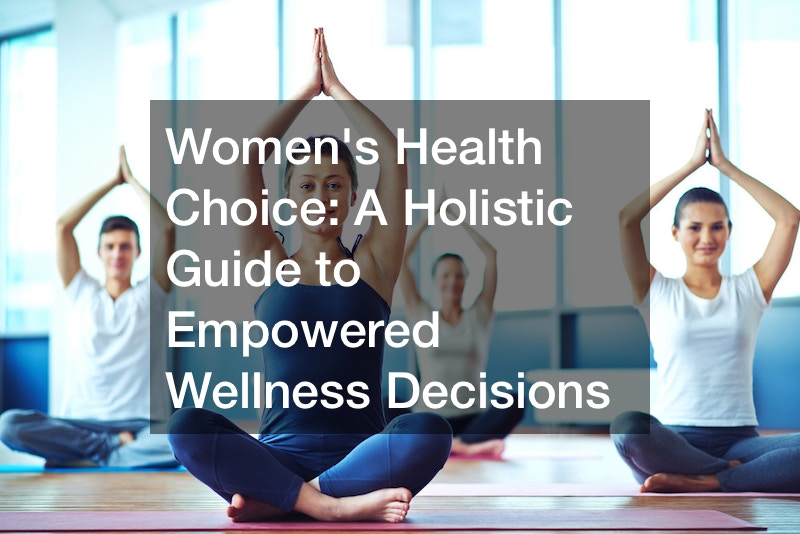Bringing a child into the world is life-altering—it not only shifts your perspective but also impacts your body. When you’re breastfeeding, you’ll notice your diet shifting too. Every meal becomes a shared experience, as you think about what’s good for both you and your little one. Those delicious bites make you wish your bundle of joy could taste them too.
Adjusting to a new sleep routine after giving birth can be challenging. You find yourself dozing off for mere moments, only to wake up to attend to your baby’s needs. Sometimes, you wait, hoping your partner will wake up, but their snores suggest otherwise. Slowly, you make your way to the baby’s room, but it seems the little one’s cries have already stirred the entire household awake.
The above scenario of an incessant crying baby will be your life for the next few months. And guess who will bear the brunt of rocking the baby’s sleep? That’s right, it’s you, Mom! However, it’s essential to remember that amidst caring for the little one, you also deserve some TLC. That’s why we’ve compiled 10 self-care tips specifically for new mothers. You deserve after birth self-care.
Before we jump right in, let’s start by answering this question:
Why After Birth Self Care Matters?
Prioritizing self-care after giving birth, often known as the postpartum period, is crucial for new mothers. This phase, lasting around six weeks or more after childbirth, can be quite challenging. Studies have shown that first-time moms are more likely to experience postpartum stress or depression. Without prioritizing self-care during this time, these emotional challenges can worsen and affect various aspects of your life.
During the postpartum phase, it’s really helpful if your partner pitches in. It’s great when they learn how to care for the newborn, change diapers, and share the feeding and waking duties. Teamwork makes handling postpartum stress much easier. If you forget to take care of yourself, it can lead to health complications. You might notice increased bleeding, infections, high blood pressure, emotional changes, and difficulty focusing at work.
Here are 10 self-care tips for after giving birth:
1.
See A Holistic Physical Therapist

After giving birth, consider seeing a holistic physical therapist—it’s a great move. The American College of OB/GYN acknowledges the role of physical therapists in assisting new mothers facing postpartum stress-related conditions. A holistic therapist can address various issues like sexual pain, incontinence, and back pain. Their therapies often involve hands-on treatments, specialized exercises like stretching, and pelvic floor muscle training. Plus, physical therapy can significantly aid in restoring your confidence and strength.
A holistic physical therapist can assist you in several ways:
- Aids in weight loss
- Enhances mental health
- Improves sexual health
- Supports heart health
- Assists in managing postpartum depression, a common issue among new moms
- Helps alleviate post-birth pain
2. Consult A Hormone Therapy Clinic
Giving birth has a way of affecting your hormones. It’s important to address any adverse effects on your physical and mental health due to hormonal imbalances. Consider consulting a hormone therapy clinic where professionals can assess your condition and recommend suitable medication to treat the imbalance.
Once you give birth, your estrogen and progesterone decrease significantly, making you feel depressed. Then your oxytocin will increase. This is mainly to help your uterus contract and prevent bleeding. Oxytocin also helps you to bond well with your baby, whereas prolactin is responsible for helping you breastfeed your baby.
As time passes, your hormones will gradually return to their pre-pregnancy levels, typically taking three to seven months. This process can vary based on whether you are breastfeeding or not. When you start weaning your baby from breastfeeding, the levels of oxytocin in your body will decrease. As a result, you might experience feelings of intense sadness, irritability, and anxiety.
Here are some tips to alleviate the effects of post-pregnancy hormonal changes:
- Diet adjustments: Opt for less sugar and focus on consuming more water, protein-rich foods like fish and chicken, vegetables, fruits, and healthy fats like extra-virgin olive oil.
- Prioritize sleep: Though uninterrupted sleep may be rare for a new mom, try to capitalize on rest whenever possible. If you have a partner who can assist, utilize this opportunity to get more sleep.
- Exercise moderately: Engaging in physical activity can boost endorphins, which aid in regulating stress and mood. However, if you’ve recently given birth, opt for less strenuous exercises until your body has fully recovered.
3. Get a Telehealth Service
Are you feeling depressed? It’s important to know you’re not alone if you’re experiencing postpartum depression (PPD). Statistics show that 1 in 7 women goes through this after childbirth. Fortunately, there’s a telehealth service available to provide support. This service allows doctors to monitor your symptoms and offer counseling remotely. The convenience of this service means you don’t have to leave your baby and travel to visit a doctor. Specialists can conduct screenings in the weeks following childbirth to prevent symptom escalation.
If you’re experiencing postpartum depression, the telehealth platform offers various communication options with specialists. You can schedule regular videoconferencing sessions with a therapist or nurse for check-ups. Alternatively, you can use text messaging to arrange regular visits with a nurse, physician, or therapist.
Here are some of the benefits of utilizing a telehealth service:
- Monitoring and tracking: Use the platform to monitor prescriptions, diet, and physical symptoms. Tracking activities and biometrics like weight and blood pressure helps you make the necessary adjustments to your diet.
- Emotional support: access a specialist via phone call or text whenever you feel emotionally overwhelmed, providing a valuable support system.
- Time and cost saving: Save time and money as there’s no need to travel long distances to visit a doctor.
- Effective Postpartum Depression Management: Telehealth services aid in better management of postpartum depression, with a high recovery rate.
4. Hormone Pellets

You may ask, what are hormone pellets? Well, hormone pellets are implants placed under your skin by a doctor or specialist. They release bioidentical hormones to restore estrogen levels. These pellets can be effective for reversing signs of aging, maintaining smooth, youthful skin, and treating menopause symptoms. Because they are derived from plants, the hormones in them closely resemble those produced naturally by your body.
Be sure to check in with your doctor before considering hormone pellets. According to a study by the Journal of the North American Menopause Society, using hormone pellets might lead to weight gain, anxiety, changes in hair patterns, acne, and more. Your doctor’s guidance is essential before starting this treatment.
5. See A Dentist
Don’t forget to include a visit to the dentist in your after-birth self-care routine. During childbirth, you might have inadvertently damaged a tooth or developed tooth sensitivity, which is common among 70% of women dealing with postpartum depression. This sensitivity can lead to intense pain, discomfort, and a reduced appetite. Your dentist can determine if the sensitivity is due to hygiene issues, calcium deficiency, or other nutritional concerns.
Oral infections during pregnancy might have occurred, necessitating treatment from a dentist. Additionally, if you increase your intake of black coffee to stay awake, it could potentially impact your oral health, warranting a dentist’s attention. The good news is that there is damaged tooth repair.
6. Why Send Your Child to a Day School?

You’ve probably noticed that being a mom is a round-the-clock responsibility. Your life largely revolves around taking care of your child and family, which can sometimes impact your mental health and social life. That’s why we suggest considering enrolling your child in a day school. It might seem like a selfish choice for many first-time moms, but it’s essential to prioritize some ‘me time’ as well.
Alone time is crucial for new moms. Your happiness matters because it affects your ability to parent effectively. Taking some moments alone allows you to engage in self-reflection, self-care, and indulge in activities that bring you joy. Whether it’s reading novels, writing stories, experimenting with recipes, or simply doing your makeup, these moments reconnect you with the person you were before embracing motherhood.
Here are some benefits of alone time for new mothers:
- Prevents resentment: Spending extensive time only with your baby can sometimes lead to feelings of resentment towards motherhood. When you’re unemployed or experiencing challenges in relationships, it’s easy to assign blame to your child. Allocating time to yourself fosters self-love and self-acknowledgement. It will also help you recognize that you can still cherish your own company and remain true to yourself.
- Gain a new perspective: Time spent alone enables self-reflection, offering a fresh outlook on various life situations. If navigating co-parenting or relationship issues with your partner, moments alone allow you to reassess situations and avoid placing undue blame on others.
- Enhances compassion: Solo moments nurture empathy by encouraging a deeper understanding of others’ viewpoints. This self-reflection enables you to perceive situations from multiple perspectives, fostering greater compassion compared to those who spend the majority of their time in constant social settings.
7. Wellness Clinic
If you find yourself overwhelmed despite attempts at ‘alone time,’ seeking support from a wellness clinic might be beneficial. Search for a ‘wellness clinic near me’ on Google and schedule an appointment. This step could be the start of transformative changes in your life.
Pick a wellness clinic that provides a specialized wellness program for new moms. Ask them if it would be possible to design a wellness program just for you. Do they offer support tailored to your needs as a first-time mother? If the answer is yes, go ahead and sign up with them. It will help you to deal with stress easily.
Here’s a breakdown of the benefits wellness clinics offer you:
- Personalized guidance: Enjoy personalized sessions with a nutritionist and life coach. These sessions will aid you in the right direction of your journey through postpartum depression.
- Yoga for healing: wellness clinics offer rejuvenating yoga sessions at select wellness centers. This will foster physical and mental recovery.
- Use your creativity: When was the last time you used your creativity? If you want to unleash that creativity with dedicated arts sessions, then wellness is your best bet. Such sessions will be perfect for those inclined towards artistic expression.
- Mindfulness sessions: Embrace mindfulness practices catered to certain aspects of your role as a mother, available at these clinics.
- Music healing: Engage in sessions that allow you to express yourself musically while having a great time.
- Get down: Feel comfortable and relaxed through dancing sessions designed to boost self-confidence and promote relaxation.
8. Take walks

Taking a stroll does wonders for your health, they say! As a new mom, walking offers heaps of benefits beyond just exercise. However, post-birth, some moms face challenges when it comes to getting back on their feet, especially after a C-section. Following such a procedure, it’s recommended to rest in bed for a few hours before beginning to walk.
Start small – perhaps a short trip from the bedroom to the bathroom or the kitchen and back. This simple activity works wonders for your circulation and can improve your bowel movements. It’s a gentle way to begin the journey back to an active routine after giving birth. While at it make sure that you have a healthy grocery list. Because as a first mom, what you eat really matters.
9. Join a Moms Support Group
Connecting with other moms can provide much-needed support and make you aware of tips and tricks that work for newborn care and parenting. It’s also a chance to socialize and build new friendships. Your little one may also get to meet and grow up with their children, who will be around the same age.
10. Pamper yourself
As a mom, you need to think more about how you will love to pamper yourself. And by this, we mean something beyond just window shopping and a shopping spree.
Have you thought about creating a traditional shed for yoga? There are more benefits to creating a ‘she shed’ for yoga. Not only does it help you to relax, but it is the best way to help you reconnect with yourself. The term ‘she shed’ sounds gender-specific, but it is not. Men and women do need a place to escape. You as a first time mom, you need that too.
To conclude
As a first-time mom, there might be moments when self-doubt creeps in, making you feel like the worst parent or questioning your decision to bring a child into this world. It’s okay—these feelings can surface. But remember, you were an individual with your own personality, dreams, and aspirations before becoming a mother. It’s essential not to let motherhood overshadow who you are. You’re still the same amazing person, and your family loves you for exactly that.
If you find yourself struggling with postpartum depression or feeling unsure about rediscovering your confidence and allure, don’t hesitate to reach out to us today! We’re here to support you on this journey.



